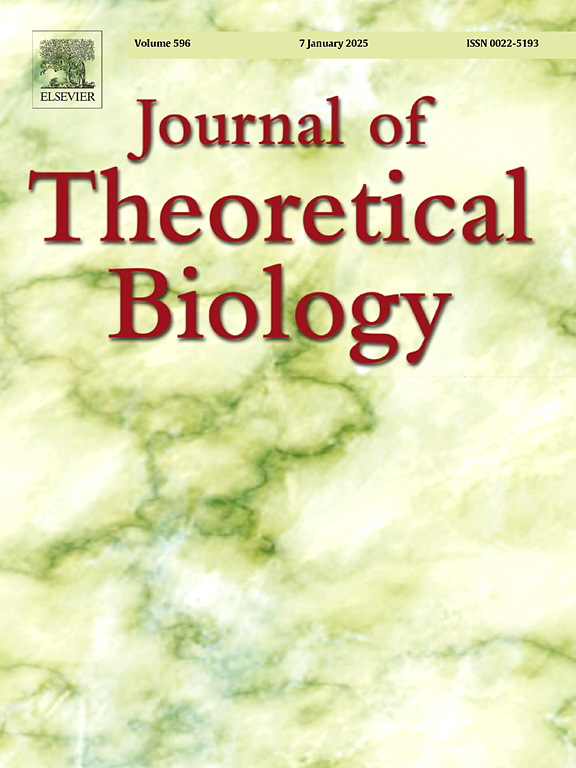Power asymmetry destabilizes reciprocal cooperation in social dilemmas
IF 2
4区 数学
Q2 BIOLOGY
引用次数: 0
Abstract
Direct reciprocity has been long identified as a mechanism to support the evolution of cooperation in social dilemmas. While most research on reciprocal cooperation has focused on symmetrical interactions, real world interactions often involve differences in power. Verbal theories have either claimed that power differences enhance or destabilize cooperation, indicating the need for a comprehensive theoretical model of how power asymmetries affect direct reciprocity. Here, we investigate the relationship between power and cooperation in two frequently studied social dilemmas, the prisoner’s dilemma (PD) and the snowdrift game (SD). Combining evolutionary game theory and agent-based models, we demonstrate that power asymmetries are detrimental to the evolution of cooperation. Strategies that are contingent on power within an interaction provide a selective advantage in the iterated SD, but not in the iterated PD. In both games, the rate of cooperation declines as power asymmetry increases, indicating that a more egalitarian distribution of the benefits of cooperation is the prerequisite for direct reciprocity to evolve and be maintained.
权力不对称破坏了社会困境中的互惠合作。
长期以来,直接互惠一直被认为是支持社会困境中合作进化的一种机制。虽然大多数关于互惠合作的研究都集中在对称互动上,但现实世界的互动往往涉及权力的差异。语言理论要么声称权力差异会加强合作,要么会破坏合作,这表明需要一个全面的理论模型来解释权力不对称如何影响直接互惠。本文以囚徒困境(prisoner’s dilemma, PD)和雪堆博弈(snowdrift game, SD)为研究对象,研究了权力与合作的关系。结合进化博弈论和基于主体的模型,我们证明了权力不对称不利于合作的进化。在迭代的SD中,取决于交互中的功率的策略提供了选择优势,但在迭代的PD中则没有。在这两款游戏中,合作率都随着权力不对称的增加而下降,这表明更平等的合作利益分配是直接互惠发展和维持的先决条件。
本文章由计算机程序翻译,如有差异,请以英文原文为准。
求助全文
约1分钟内获得全文
求助全文
来源期刊
CiteScore
4.20
自引率
5.00%
发文量
218
审稿时长
51 days
期刊介绍:
The Journal of Theoretical Biology is the leading forum for theoretical perspectives that give insight into biological processes. It covers a very wide range of topics and is of interest to biologists in many areas of research, including:
• Brain and Neuroscience
• Cancer Growth and Treatment
• Cell Biology
• Developmental Biology
• Ecology
• Evolution
• Immunology,
• Infectious and non-infectious Diseases,
• Mathematical, Computational, Biophysical and Statistical Modeling
• Microbiology, Molecular Biology, and Biochemistry
• Networks and Complex Systems
• Physiology
• Pharmacodynamics
• Animal Behavior and Game Theory
Acceptable papers are those that bear significant importance on the biology per se being presented, and not on the mathematical analysis. Papers that include some data or experimental material bearing on theory will be considered, including those that contain comparative study, statistical data analysis, mathematical proof, computer simulations, experiments, field observations, or even philosophical arguments, which are all methods to support or reject theoretical ideas. However, there should be a concerted effort to make papers intelligible to biologists in the chosen field.

 求助内容:
求助内容: 应助结果提醒方式:
应助结果提醒方式:


